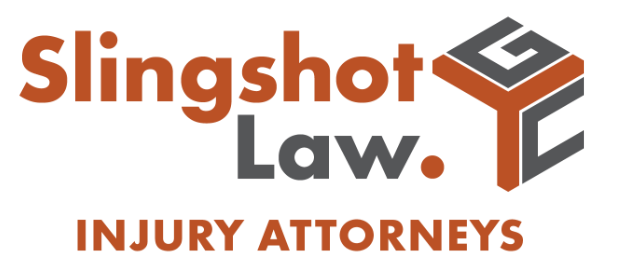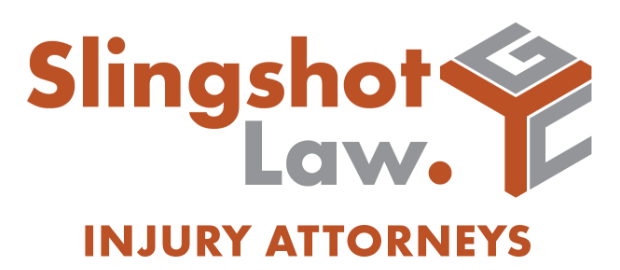A routine rideshare trip in Grand Junction can suddenly result in serious injuries and lasting consequences. When an Uber or Lyft vehicle is involved in a crash, the legal process becomes more complicated than a typical car accident claim.
Instead of working with one driver’s insurance company, you may need to navigate several corporate insurance layers designed to reduce compensation. Reaching out to a Grand Junction Uber and Lyft accident lawyer as soon as possible is one of the most effective steps you can take toward protecting your rights and pursuing full financial recovery.
If you’ve been injured in a rideshare accident in Mesa County and need straightforward legal guidance, contact Slingshot Law today at (800) 488-7480 for a free consultation with an experienced rideshare accident attorney.
Key Takeaways from Your Colorado Rideshare Crash
- Rideshare accident claims are different from typical car crashes because they involve complex corporate insurance policies, not just a driver’s personal coverage.
- Colorado law requires Transport Network Companies (TNCs) like Uber and Lyft to carry significant liability insurance, often up to $1 million, depending on the driver’s app status at the time of the collision.
- Identifying the driver’s liability phase (Available, Matched, or Engaged) is the key step in knowing which insurance policy applies to your Grand Junction Uber accident claim.
- You must act quickly to gather evidence and file a claim because strict deadlines, known as the statute of limitations, apply to personal injury cases in Colorado.
Why Choose Slingshot Law as Your Grand Junction Uber and Lyft Accident Lawyers

When you’re facing the large legal teams that represent Uber or Lyft, you need experienced attorneys who understand how to challenge corporate insurers. At Slingshot Law, we focus on helping injured victims recover full and fair compensation after rideshare crashes.
From our office in Grand Junction, CO, we provide experienced, determined representation for Uber and Lyft accident claims throughout the Western Slope.
How We Investigate Your Uber and Lyft Accident Claim
Our attorneys look beyond the driver’s personal policy to pursue the corporate insurance coverage available in Phase 2 and Phase 3 accidents. Founding partners Drew Gibbs and Scott Crivelli bring decades of experience holding insurance companies and corporations accountable for their clients’ injuries.
When you hire a Grand Junction Uber and Lyft accident lawyer, our team immediately begins a detailed investigation to build your strongest claim. We obtain:
- Uber or Lyft electronic logs showing the driver’s status before the crash
- Police reports and witness statements to confirm activity and fault
- Cell phone and app data verifying the driver was using the rideshare platform
- Background information on the driver to identify potential negligence
This evidence helps us establish liability and pursue every available source of compensation.
Understanding Uber and Lyft Insurance Coverage in Colorado
Uber and Lyft rely on commercial liability policies that offer high coverage limits but contain strict exclusions. Their adjusters often look for ways to delay or reduce claims. Our Grand Junction Uber and Lyft accident lawyers challenge these tactics and work to ensure you receive the full compensation you deserve.
Local Grand Junction Legal Team with Proven Results
As a Grand Junction-based personal injury firm, we understand the unique challenges Western Slope residents face after a crash, from medical treatment to lost income. If insurers refuse to settle fairly, we are prepared to take your case to trial. We provide clear communication and consistent guidance throughout your case.
How Our Lawyers Protect Your Financial Recovery
After a rideshare accident, financial strain can quickly add to the difficulties of recovery. We take over all insurance communications so you can focus on healing while we handle the legal and financial aspects of your claim. With Slingshot Law, you gain peace of mind knowing experienced attorneys are fighting for your full recovery.
Understanding Liability After a Grand Junction Uber or Lyft Accident
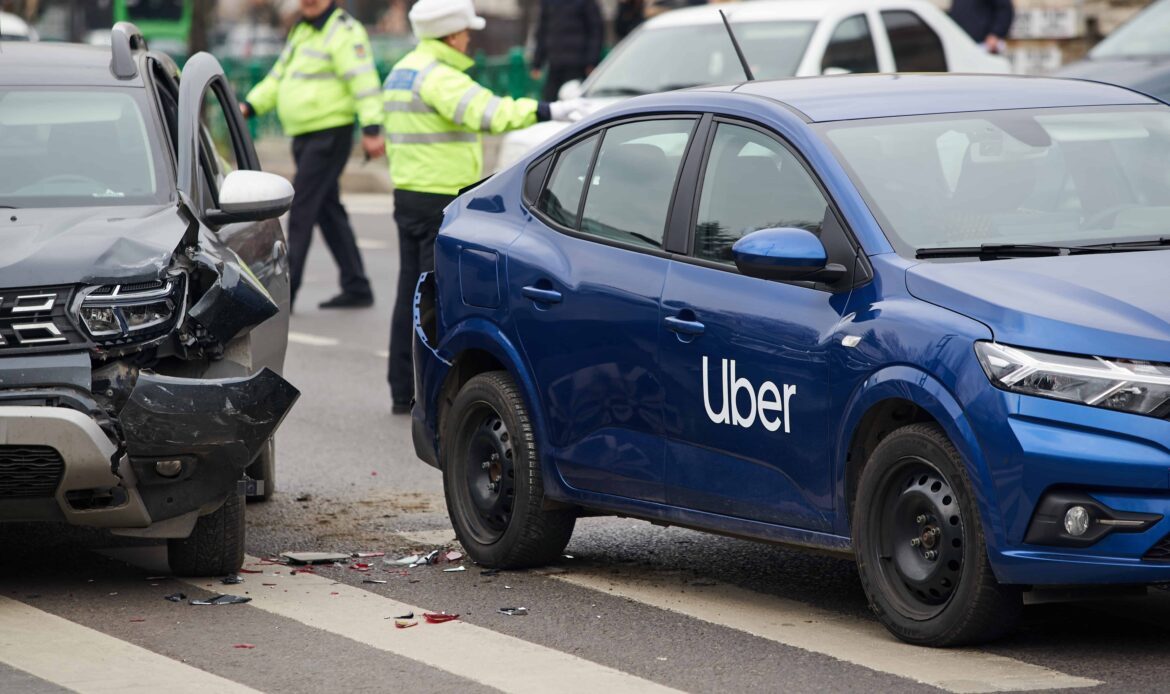
A collision on I-70 or a side street in downtown Grand Junction involving an Uber or Lyft driver immediately triggers a complex insurance analysis. The available coverage may shift dramatically based on what the driver was doing at the moment the wreck occurred. This uncertainty can make it difficult for injured people to understand how to pursue compensation.
The State of Colorado recognizes three distinct periods, or phases, of driver activity for Transportation Network Companies (TNCs). These phases dictate which policy is active: the driver’s personal auto insurance or the massive corporate liability coverage carried by the TNC.
The Three Insurance Phases That Affect Your Colorado Uber or Lyft Claim
The coverage available to you as an injured party relies entirely on the driver’s status as defined in C.R.S. § 40-10.1-605. This statute establishes mandatory minimum liability requirements for TNCs operating across the state, including the Western Slope. Understanding these distinctions is fundamental to recovering fair compensation.
You must confirm the driver’s exact status at the time of the collision to determine the proper insurance to target. This is not always clear from the accident scene alone.
- Phase 1: App Off/Personal Use. If the Uber or Lyft driver is driving the vehicle for personal use with the app completely off, their personal insurance policy applies, and the TNC provides no coverage.
- Phase 2: App On/Awaiting Match (Available). If the driver has the rideshare app on and is waiting for a ride request, the TNC’s secondary coverage kicks in, providing a lower minimum coverage limit.
- Phase 3: Accepted Ride/Engaged (En Route or Carrying a Passenger). Once the driver accepts a ride and is traveling to pick up a passenger, or is actively transporting a passenger, the highest level of TNC coverage applies, often reaching $1 million.
If you were the passenger, your focus remains on holding the driver and the TNC liable for their negligence. If you were a driver or pedestrian, your claim must be directed at the appropriate insurance policy as determined by this phase system.
Claims adjusters for the TNC often work hard to categorize the event into a lower coverage phase, which means injured individuals must have strong advocacy right away. The complex nature of rideshare liability in a Grand Junction setting makes legal guidance more than helpful—it is often necessary to successfully navigate the claim process.
Why Rideshare Accidents Require a Specialized Legal Strategy
Rideshare companies intentionally structure their business to complicate accident claims, viewing their drivers as independent contractors rather than employees. This classification is their primary tool to reduce their financial responsibility when a crash occurs in places like Mesa County or anywhere in Colorado.
These insurance policies are written to protect the company, not the person who was injured. A standard insurance claim adjuster deals with a single policy and clear-cut liability rules, but a Colorado rideshare injury attorney must deal with corporate lawyers and aggressive adjusters working to shield a multi-billion dollar company.
This requires a specific knowledge of Colorado rideshare insurance laws and the ability to demand proper evidence of the driver’s app activity.
The initial steps you take after a collision directly impact your ability to recover funds, making early legal involvement important for preserving all available evidence.
Pursuing Full Compensation After a Mesa County Uber or Lyft Accident
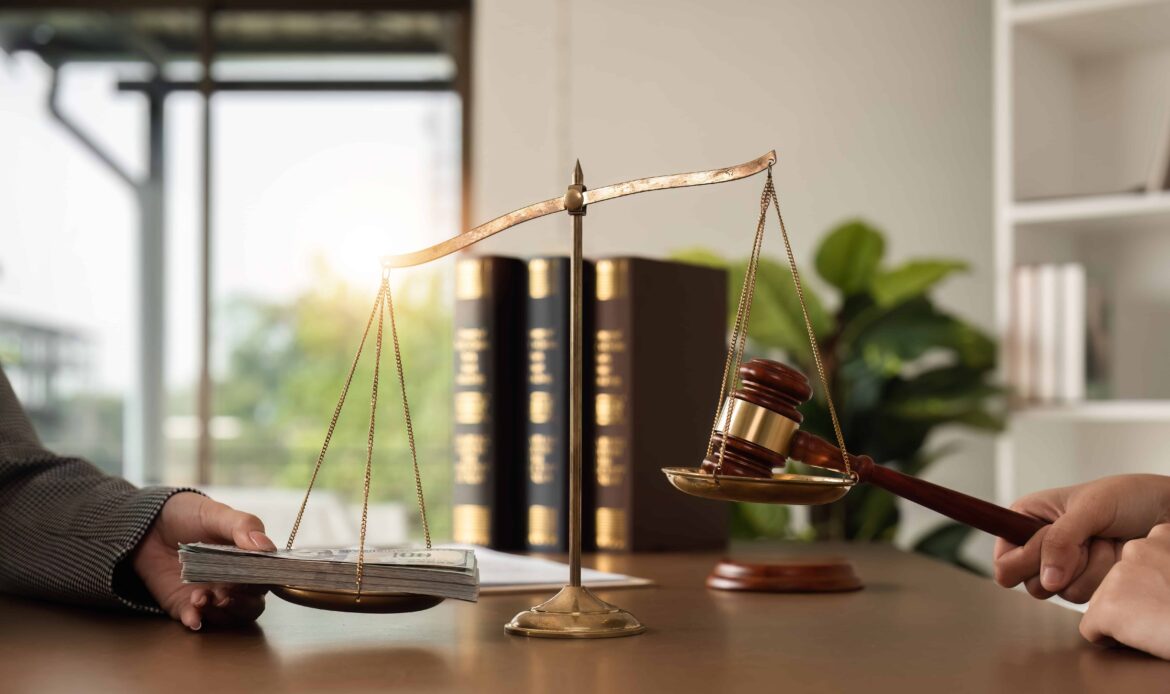
A collision involving a TNC vehicle often results in severe injuries that require extensive medical care and rehabilitation. The purpose of a personal injury claim is to seek financial recovery for all harms and losses caused by the negligence of the rideshare driver and the corresponding TNC.
You may be entitled to various types of damages under Colorado law, designed to restore you to the financial position you held before the accident. We carefully calculate all your losses, both current and future, to ensure we pursue the full value of your Mesa County Uber liability claim.
Damages and Deadlines in Colorado Rideshare Injury Claims
In Colorado, the law recognizes two primary categories of damages: economic and non-economic. Economic damages cover verifiable, out-of-pocket costs, while non-economic damages cover the subjective impact of the injury on your life.
Securing compensation in a TNC accident must start with an understanding of the state’s legal timeline. The statute of limitations for most personal injury claims in Colorado is three years, as outlined in C.R.S. § 13-80-101. Missing this deadline permanently forfeits your right to seek recovery.
Your Grand Junction Uber and Lyft accident lawyer can pursue several types of financial compensation, including:
- Medical Treatment Costs: Covering all past and future medical expenses, including hospital stays, surgeries, physical therapy, and prescription medications.
- Lost Wages and Earning Capacity: Recovering income lost due to time missed from work and compensation for a reduced ability to earn a living in the future.
- Pain and Suffering: Accounting for the physical pain, emotional distress, and mental anguish caused by the crash and resulting injuries.
- Disfigurement and Impairment: Compensation for permanent scarring, loss of bodily function, or long-term disability resulting from the accident.
Every personal injury claim is unique, and the value depends entirely on the severity of the injury and the clarity of the opposing party’s negligence. The amount of compensation pursued may dramatically change based on the specific facts of the collision and the available insurance coverage.
How Comparative Negligence Affects Colorado Rideshare Claims
Colorado follows a modified comparative negligence rule, meaning that a plaintiff’s financial recovery is reduced by the percentage of fault they share for the accident. If a court determines that you are 50% or more responsible for the collision, you are legally barred from recovering any damages at all.
This rule often motivates insurance companies to shift some of the blame onto the injured person. We rigorously defend our clients against any unsubstantiated claims of shared fault made by the defense team.
FAQs for Grand Junction Uber and Lyft Accident Lawyers
What is the biggest difference between a regular car accident and an Uber or Lyft accident claim?
The difference is the insurance policy that applies; regular accidents use a personal policy, but rideshare accidents activate multi-million-dollar corporate liability policies which are governed by a complex three-phase system based on the driver’s app status.
What if the Uber driver was using a different rideshare app at the time of the crash?
The determining factor is the active app at the exact time of the collision; if the driver was not actively engaged with either Uber or Lyft, the TNC coverage might not apply, meaning the claim reverts to the driver’s personal insurance.
How long do I have to file a lawsuit after an accident in Grand Junction?
In most cases, Colorado law provides a three-year deadline, or statute of limitations, from the date of the crash to file a lawsuit, which is why contacting a Colorado rideshare injury attorney promptly is important.
Will I have to go to court for my rideshare accident claim?
Most Lyft accident claims in Grand Junction settle out of court after rigorous negotiation, but we are always prepared to take your case to trial if the insurance company fails to offer a fair and reasonable settlement for your injuries and losses.
Take Control of Your Grand Junction Rideshare Injury Claim Today
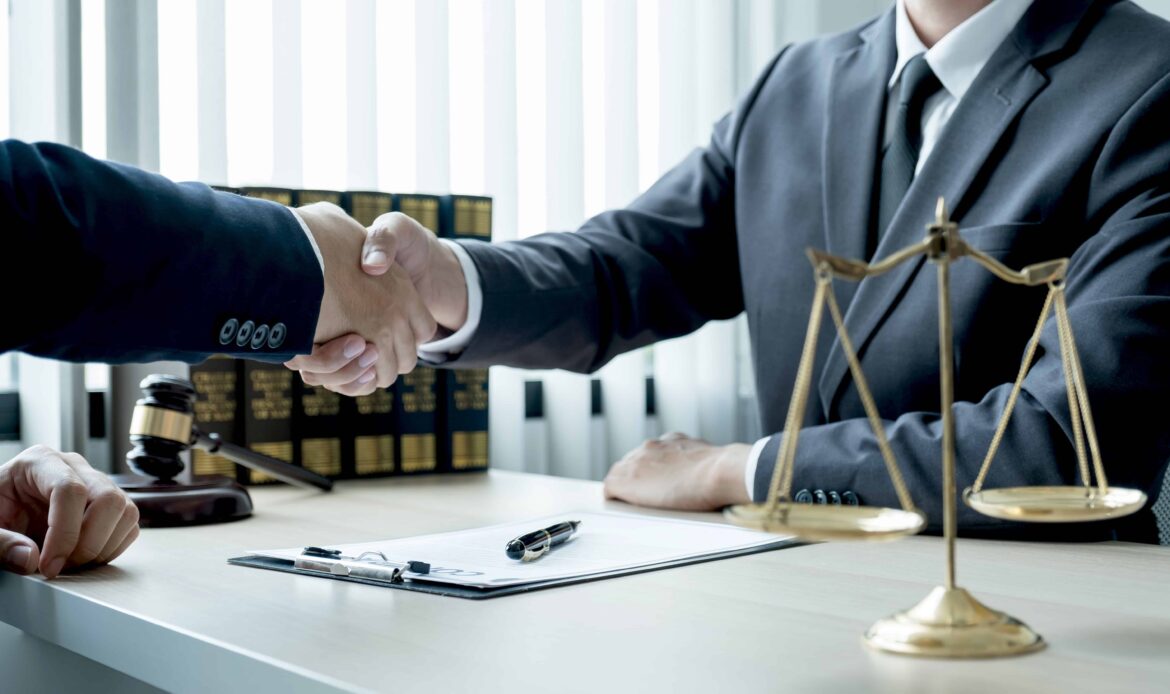
A rideshare crash can leave you with mounting medical expenses, missed work, and pressure from insurance companies to settle before you understand the full extent of your losses.
Large insurers often prioritize their profits by offering payouts that fall short of covering long-term costs. Acting quickly can help protect your right to pursue the full compensation available under Colorado law.
If you were injured by a negligent rideshare driver, it’s important to have experienced legal guidance on your side. Speaking with a Grand Junction Uber and Lyft accident lawyer can help you understand your options and protect your rights throughout the claims process.
Contact Slingshot Law today at (800) 488-7480 for a confidential case review and learn how our team can help you move forward.
Grand Junction Office
Address: 734 Main Street, Grand Junction, CO 81501
Phone: (800) 488-7480
